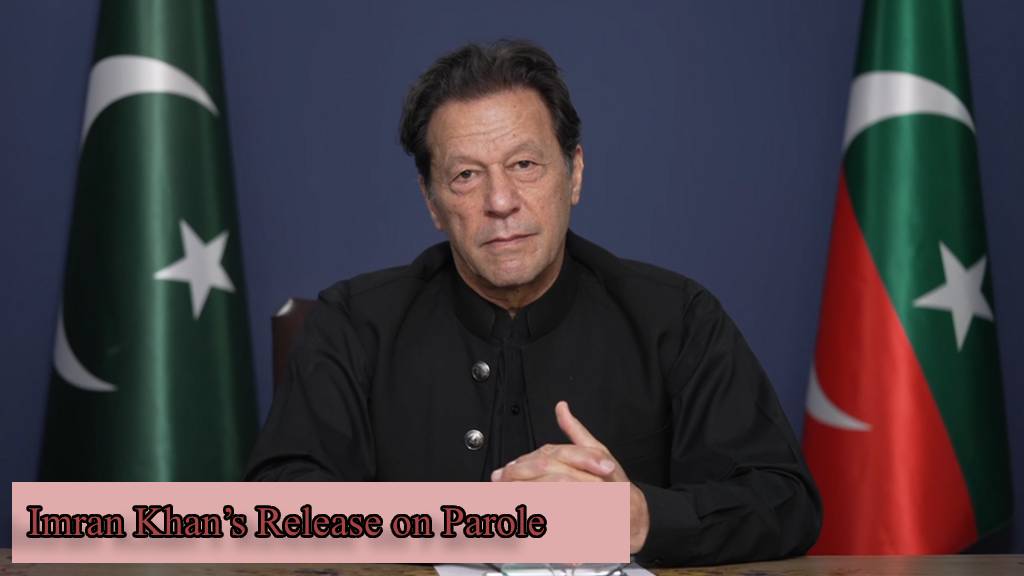Khyber Pakhtunkhwa CM Ali Amin Gandapur has filed a petition in the Islamabad High Court seeking Imran Khan’s release on parole, citing rising national security threats and regional instability. Read more about the legal petition and its implications
Ali Amin Gandapur Files Petition in IHC Seeking Imran Khan’s Release on Parole Amid Rising National Security Concerns
ISLAMABAD – In a significant development amid heightened national tensions, Chief Minister of Khyber Pakhtunkhwa, Ali Amin Gandapur, has submitted a constitutional petition in the Islamabad High Court (IHC) demanding the parole-based release of Pakistan Tehreek-e-Insaf (PTI) founder and former Prime Minister Imran Khan in all cases against him.
The petition, filed on Friday through senior counsels Latif Khosa and Shehbaz Khosa, underscores the urgency of the national security crisis gripping Pakistan. Gandapur argues that the prevailing conditions, especially in light of increasing threats from neighboring India, necessitate exceptional legal action.
Table of Contents
National Security Grounds Cited as Key Factor
At the heart of Gandapur’s petition lies the deteriorating regional situation, marked by what he describes as “unprovoked aggression” from the Indian government led by Prime Minister Narendra Modi. He referenced recent drone attacks targeting various Pakistani cities, warning that such actions have created serious threats to national figures—including Imran Khan, who is currently incarcerated in Adiala Jail.
Imran Khan Seen as a Strategic Target
Gandapur’s petition emphasized that Imran Khan’s vocal criticism and opposition to Modi’s government during his tenure as Prime Minister had elevated him to a status of strategic importance, making him a likely target.
“Imran Khan has consistently challenged India’s policies at both national and international levels. His leadership has embarrassed Modi on global platforms. Modi sees Imran as the most powerful voice representing Pakistan’s interests and aspirations,” the petition reads.
In this context, Gandapur warned that the Central Jail Adiala—where Khan is imprisoned—could become a symbolic and strategic target, thereby endangering not just Khan’s life but also Pakistan’s internal stability.
Call for National Unity and Political Mobilization
The petition also calls for Khan’s release on parole as a means to foster national unity and consolidate the country’s political voice amid regional threats. Gandapur stressed that millions of PTI supporters, both within the country and in the diaspora, look to Imran Khan for leadership in times of crisis.
According to the petition, allowing Imran Khan temporary release under strict parole conditions would enable him to play a vital role in rallying the nation and reinforcing Pakistan’s global stance against Indian hostilities.
“Releasing Imran Khan on parole will help reenergize the nation’s spirit and send a strong signal to adversaries about Pakistan’s political resolve,” Gandapur stated.
Compliance with Parole Conditions Assured
The KP Chief Minister assured the Islamabad High Court that Imran Khan would fully abide by all legal stipulations attached to parole. These include close supervision, routine check-ins with authorities, and abstaining from any political rallies or unlawful activities.
Gandapur also pointed out that Imran Khan’s prison conduct has been exemplary, with no infractions reported, which further justifies the request for parole.

Previous Efforts and Legal Path Forward
The petition reveals that a previous application had been filed with the Secretary of the Punjab Home Department, seeking Khan’s parole on similar grounds. However, that request has gone unanswered so far.
The petition now seeks judicial intervention, stating that parole is a constitutional right designed to prevent the arbitrary or politically motivated detention of any individual—especially when their release could serve a national purpose.
Gandapur’s legal team emphasized that Khan’s health could be at risk if he remains imprisoned amid the current threat level. They argued that parole is not a political privilege but a legal and humanitarian measure available under Pakistan’s constitutional framework.
Political Repercussions and Global Attention
This move is expected to escalate political tensions and attract international attention, especially from countries observing the India-Pakistan conflict closely. With India and Pakistan exchanging barbs and military actions in recent weeks, internal political dynamics in Pakistan are more sensitive than ever.
Gandapur’s petition may also spark a broader debate on civil liberties, constitutional rights, and national emergency responses, particularly in times of escalating geopolitical stress.
Conclusion
Ali Amin Gandapur’s petition reflects growing concern within Pakistan’s political leadership regarding both internal stability and external threats. As the Islamabad High Court considers the petition, the case could become a legal milestone, setting precedent on how national security emergencies intersect with civil liberties and judicial processes.
The court’s decision, expected in the coming days, may have far-reaching implications—not just for Imran Khan, but for Pakistan’s political landscape as a whole.